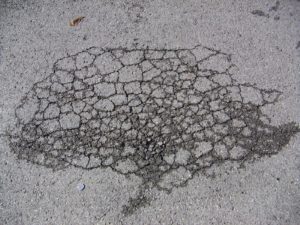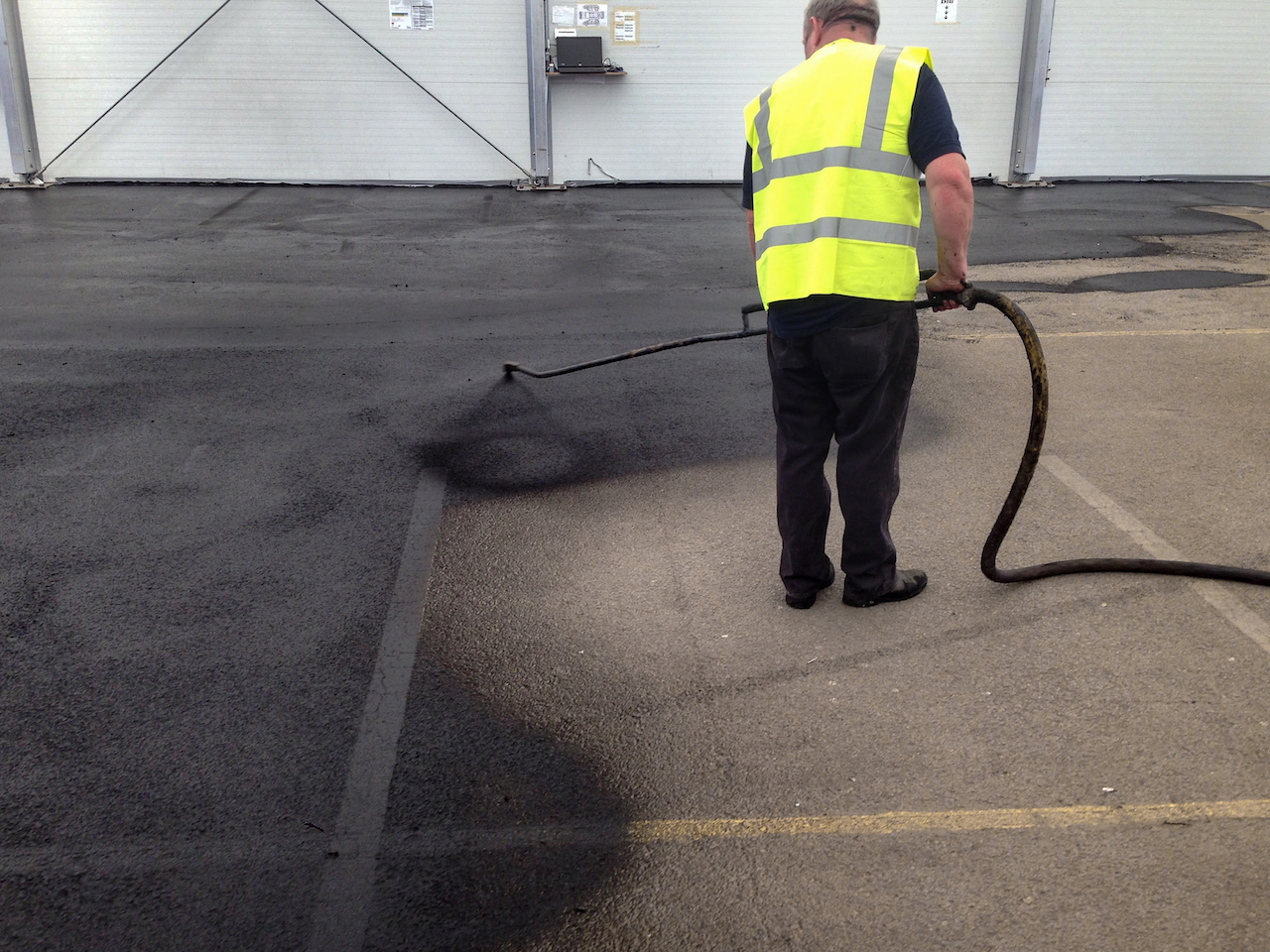Alligator cracking
What Causes Alligator Cracking?
In almost every instance, alligator cracking is the result of a foundation that has become too eroded, damaged, or unstable to supply the support that the pavement needs to withstand the weight of traffic. In turn, most foundation damage is caused by water that has leaked through unrepaired potholes or cracks, penetrated deep into the structure, and plucked materials out of the foundation layers. Routine asphalt maintenance, timely asphalt crackfilling or sealing, periodic applications of asphalt sealcoating, and professional pothole repair can help prevent alligatored asphalt.
Which Asphalt Repair Method Is Best for Alligator Cracking?
Unless your asphalt maintenance contractor advises otherwise, your best bet is to choose a repair method known as full-depth asphalt patching. This method requires the removal of the damaged pavement to expose the foundation, which can then be repaired or strengthened. Next, the contractor places fresh asphalt in the area and compacts it. In some cases, the contractor finishes by sealing the edges of the patch to make sure that water cannot penetrate beneath the patch. There are other types of asphalt patching techniques, including partial-depth and skin patches, but a full-depth patch will have a much longer life. Incidentally, asphalt patching is also the most popular method of pothole repair.
Is Asphalt Crackfilling an Acceptable Type of Asphalt Repair for Alligator Cracking?
Although timely asphalt crackfilling or crack sealing can help prevent alligator cracking, they are not an acceptable method for repairing it. Alligatored asphalt has little or no support, so normal traffic will press down on the area, breaking any bond that the pavement had with the filler or sealer. Furthermore, alligator cracks are virtually always working cracks, which means that they respond to temperature fluctuations by expanding and contracting. Such movements can dislodge crack filler within a matter of weeks or even days.
Is Asphalt Patching Appropriate for Pavements With Alligator Cracking Covering More Than 30% of Their Surface?
Technically, you could have your contractor patch as much of your total square footage as you want. The question that arises is whether it would be more cost-effective to reconstruct your pavement. Only your contractor can advise you on the differences in price, longevity, and appearance between a reconstruction and the extensive repairs that would be needed to repair so many areas of alligatored asphalt.
Trust MH Greeson for Everything Related to Asphalt Paving
Greeson Sealcoating is an established paving company with an impeccable reputation for high-quality craftsmanship, unmatched customer service, and professional project management. Our services include asphalt crack repair, ADA compliance, asphalt repairs, pavement markings, bollard installation, traffic signage, car stops, and asphalt paving. We would be happy to provide you with a free quote; simply fill out our online form, or call our Marietta office at 770-335-2983 to discuss your paving needs in greater detail.




